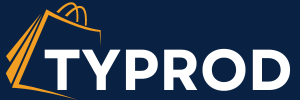Furniture World News Desk on
2/10/2025

In today’s digital age, content is king. Whether you run a blog, a social media account, a website, or any other online platform, consistently producing high-quality content is essential for success. To stay organized and maintain a steady flow of content, creating and using a content calendar is a must. In this blog post, we’ll guide you through the process of creating a content calendar and show you how to use it effectively on a daily basis.
Creating a Content Calendar
Step 1: Define Your Goals and Audience
Before diving into creating a content calendar, it’s crucial to understand your goals and target audience. What are you trying to achieve with your content? Who is your ideal audience? Knowing these answers will help you tailor your content to meet your objectives.
Step 2: Choose a Calendar Tool
There are various tools available for creating content calendars. You can use a simple spreadsheet, a project management tool like Trello, or specialized content calendar software like CoSchedule or Buffer. Choose the tool that best suits your needs and preferences.
Step 3: Determine Your Posting Frequency
Decide how often you want to publish content. Whether it’s daily, weekly, or monthly, having a clear posting schedule will help you stay consistent.
Step 4: Brainstorm Content Ideas
Gather a list of content ideas that align with your goals and audience. These ideas can be blog topics, social media posts, videos, infographics, or any other type of content you create. Having a bank of ideas will prevent writer’s block.
Step 5: Create a Calendar Template
In your chosen calendar tool, create a template for your content calendar. Include columns for dates, content titles, platforms, and any other relevant information. This template will serve as the foundation for your content planning.
Step 6: Plan Your Content
Start populating your content calendar with the ideas you brainstormed. Assign specific dates to each piece of content, and make sure they align with your posting frequency and goals. Be realistic about your capacity to produce content.
Using Your Content Calendar Daily
Step 7: Stick to Your Schedule
Your content calendar is only effective if you follow it consistently. Stick to your posting schedule and meet your deadlines. Consistency is key to building an engaged audience.
Step 8: Create Content in Batches
To save time and maintain a steady flow of content, consider creating content in batches. Dedicate specific days to writing, designing, or recording multiple pieces of content at once.
Step 9: Stay Flexible
While it’s important to follow your content calendar, it’s also essential to remain flexible. Be open to adjusting your schedule when necessary, especially when unexpected events or trending topics arise.
Step 10: Analyze and Adapt
Regularly review the performance of your content. Use analytics tools to measure engagement, clicks, shares, and other relevant metrics. Adjust your content strategy based on what works and what doesn’t.
Step 11: Engage with Your Audience
Don’t forget to engage with your audience. Respond to comments, answer questions, and take feedback into account. Building a community around your content can lead to increased loyalty and growth.
Creating and using a content calendar is a valuable tool for content creators and marketers. It helps you stay organized, maintain consistency, and achieve your content goals. By defining your objectives, planning your content, and following your schedule, you can create a content strategy that resonates with your audience and drives success in the digital landscape. So, start planning your content calendar today and watch your online presence thrive.
If you’re ready to take your content marketing strategy to the next level or need expert guidance along the way, Orbit Interactive Marketing Group is here to assist you. Contact us today, and let’s embark on this digital journey together, ensuring the growth and prosperity of your retail furniture business in the digital age.
Darrell Dahlberg, Retail Brand Partnerships lead for Orbit Furniture Solutions, specializes in helping furniture retailers craft effective digital marketing strategies that cut costs and boost results. Contact Darrell at darrell@orbitinteractive.com.













